Via Robin Good
Get Started for FREE
Sign up with Facebook Sign up with X
I don't have a Facebook or a X account
 Your new post is loading... Your new post is loading...
 Your new post is loading... Your new post is loading...

Zhang Meilan's curator insight,
January 6, 2013 8:49 AM
如何在你的班上使用内容策展 教师是内容策展人,他如何在课堂上使用内容策展工具呢?作者提到了11种方法。包括: 1.创造集体活动; 2.组织和传播新内容,将之作为一种数字讲义,提供给在线学生和翻转课堂; 3.收集并跟学生共享专业阅读材料; 4.促进对时事的讨论; 5.鼓励学生陈给内容的创造者和策展人; 6.与课堂外以及世界知识背景的专家建立关系; 7.对网络上信息进行批判,并教给学生去组织社会化媒体; 8.帮助学生获取信誉和知名度; 9.帮助学生跟踪在线研究工作; 10.创建阅读列表; 11.帮助学生掌握使用互联网“集体智慧”的能力。

Louise Robinson-Lay's curator insight,
July 3, 2013 5:06 AM
An article outlining some ways to use content curation in schools. 
Sacra Jáimez's curator insight,
September 15, 2014 1:59 PM
Sensible ideas for content curation in our classrooms.

Becky Roehrs's curator insight,
July 30, 2014 2:52 PM
Wow-I'm going to check this out! If you have a blog or web site, or an e-learning class, it can never hurt to learn more about design, especially from experts. 
Olga Senognoeva's curator insight,
July 30, 2014 2:52 PM
. ЭТО Учебный концентратор материалов О дизайне В Нем ВЫ найдете:
- Статьи - Уроки - Инструменты (https://hackdesign.org/toolkit) - оборудование - Технологии
от ведущих дизайнеров мира.
Материал доступен для несведующих в дизайне пользователей.
Полезен вебинаристам при создании презентаций и прочих материалов для продвижения вебинаров.
Инструкторы курса: https://hackdesign.org
Учебный концентратор представлен в соцсетях:
Facebook: https://www.facebook.com/hackdesigners/info Twitter: https://twitter.com/hackdesign
Посмотрите прямо сейчас: https://hackdesign.org / 
Joyce Valenza's curator insight,
October 5, 2014 9:26 AM
Great for high school learning too! Use with art, digital storytelling, web design classes.

Terry Elliott's curator insight,
August 16, 2014 7:23 AM
The image above amounts to a template for curating a digital space: Find something timeless to curate.Fit it into a pattern that makes sense.Find a larger context for why this matters.Share widely.I think this fits into Harold Jarche’s simpler seek-sense-share framework. Why does this matter? If curation is all that Tufte and Bhatt say it is, then why aren’t scaffolds like these being used more often for training and in learning systems? I am using the curation tool Scoop.it to do curation with my freshman comp students. They use Scoop.it as their introductory platform for beginning to acquire the skills Tufte enumerates above that are part of the academic and business spaces they will eventually live in. I am hoping they will demonstrate why it curation matters as they seek-sense-share their way to long and short form ‘texts’ that they will be writing all semester. That will include essays, tweets, G+ community posts, blog posts, research papers, emails, plusses, favs, instagrams, zeegas, slideshares, pictures, and a massive mobile presence from their own digital spaces. Wish me luck. Interesting links from article and from comments: http://curation.wikispaces.com/General+References“Digital Media and Learner Identity: The New Curatorship”: http://www.palgraveconnect.com/pc/doifinder/10.1057/9781137004864http://www.lkl.ac.uk/people/potterhttp://digitalcurationandlearning.wordpress.com/http://digitalcurationandlearning.wordpress.com/2014/02/01/curatorship-is-a-new-literacy-practice/http://luke-callahan.com/students-must-curate-create-a-portfolio/
Terry Elliott's curator insight,
August 16, 2014 7:26 AM
The image above amounts to a template for curating a digital space:
1. Find something timeless to curate. 2. Fit it into a pattern that makes sense. 3. Find a larger context for why this matters. 4. Share widely.
I think this fits into Harold Jarche’s simpler seek-sense-share framework.
Why does this matter? If curation is all that Tufte and Bhatt say it is, then why aren’t scaffolds like these being used more often for training and in learning systems? I am using the curation tool Scoop.it to do curation with my freshman comp students. They use Scoop.it as their introductory platform for beginning to acquire the skills Tufte enumerates above that are part of the academic and business spaces they will eventually live in. I am hoping they will demonstrate why it curation matters as they seek-sense-share their way to long and short form ‘texts’ that they will be writing all semester. That will include essays, tweets, G+ community posts, blog posts, research papers, emails, plusses, favs, instagrams, zeegas, slideshares, pictures, and a massive mobile presence from their own digital spaces. Wish me luck. Interesting links from article and from comments: http://curation.wikispaces.com/General+References“Digital Media and Learner Identity: The New Curatorship”: http://www.palgraveconnect.com/pc/doifinder/10.1057/9781137004864http://www.lkl.ac.uk/people/potterhttp://digitalcurationandlearning.wordpress.com/http://digitalcurationandlearning.wordpress.com/2014/02/01/curatorship-is-a-new-literacy-practice/http://luke-callahan.com/students-must-curate-create-a-portfolio/ 
Ignacio Conejo Moreno's curator insight,
February 14, 2015 7:35 AM
"A curator, therefore, whether she is a journalist-by-proxy such as Popova or a student completing an assignment in a classroom, not only collects and interprets, but also creates a new experience with it." Creo que esta definición zanja la discusión sobre si un "Content Curator" es una adaptación moderna al "Documentalista" de los medios tradicionales. De muy recomendada lectura para los que nos dedicamos a la Curación de Contenidos.

Robin Good's comment,
July 8, 2014 1:31 PM
@Gilbert C FAURE: a few are, many not yet. But don't worry, if they are investing in planning for a sustainable future, not created only at the expense of paying students, they'll figure it out by themselves pretty soon.

Jeroen Boon's curator insight,
July 12, 2014 10:39 AM
Exciting article about the future of our universities! 
Olga Senognoeva's curator insight,
August 12, 2014 4:39 AM
"... Как будет выглядеть будущее образования?

Christoph Meier's curator insight,
August 11, 2014 4:20 AM
Hilfreicher Übersichtsartikel mit Links zu verschiedenen Beiträgen in peer reviewed journals.
Mark Monsen's curator insight,
May 6, 2015 11:21 PM
All about curation, some great educational models

Donella Marie Muzik's curator insight,
January 7, 2014 11:09 AM
A really wonderful way to describe a very important concept 
Eileen Forsyth's curator insight,
January 17, 2014 12:17 PM
Wow, this is what I've been thinking I should have my independent study kids doing!

Alfredo Corell's curator insight,
October 3, 2013 5:48 PM
An excellent story for lecturers or teachers thinking in content curation as a tool in their aulas. 
Fiona Harvey's curator insight,
October 8, 2013 2:22 AM
Useful for educators - key digital literacy skill 
johanna krijnsen's curator insight,
December 4, 2013 2:00 PM
content curation and critical thinking skills

Andrea Walker's curator insight,
May 17, 2013 10:56 PM
By using lists lists and hash tags effectively twitter can be u useful curation tool. Storify another mentioned in this article could also be a useful tool to curate twitter content 
Andreas Kuswara's comment,
June 11, 2013 9:22 PM
I supposed twitter can be used or any tool can be used for anything,but some tools are made with certain intended affordance by the creator that would make the tool less effective for certain functions. curation in a way is capturing things void of time (i probably drawing too much from museum), while twitter is fast pace timeline of interactive (or one way) discourse.... they seems to be inherently different.
i'm just automatically sceptical when 'one tool can be use for all' theme appear. but it is an interesting suggestion.

Robin Good's curator insight,
April 30, 2013 6:11 PM
The Avoca Learning platform is a web service which facilitates the finding, collection and organizing of vetted learning resources from dozens of the leading educational sites. The platform already offers over 20,000 resources from over 35 leading education sites. In the near future new educational resources in the fields of of Language Arts/Reading, and History/Social Studies will be added. Users can search the already vetted and curated resources and then collect and organize them into specific "albums" dedicated to specific topics. From the official site: "The Avoca Learning Platform brings together thousands of online learning resources that students, parents and teachers can search, manage and share. Whether you’re looking for a very specific resource for a single concept (equivalent fractions, for example) or a collection of content that’s aligned to an entire course, the Avoca Learning Platform provides a powerful curation engine to bring you the resources you need, when you need them." "Avoca Learning helps to solve that problem by finding and indexing the best digital content, allowing users to organize and save that content, and then making it easy to share that curated content with other users." Curated results can also be filtered by subjects, topics, resource type, media type and grade level. Free to use. Try it out now: http://avocalearning.com Video tutorial on how "search" works in Avoca: http://vimeo.com/63171301 How it works: http://www.avocalearning.com/how-it-works/ 
Raquel Oliveira's curator insight,
May 2, 2013 2:56 PM
Ferramenta para filtrar as informações relevantes da net e aprimorar a curadoria de conteúdo para fins de estudo ! Vale a consulta .

Diana Juárez's curator insight,
April 26, 2015 1:27 PM
La curación como herramienta pedagógica para propiciar el pensamiento crítico en la educación. 
Bárbara Mónica Pérez Moo's curator insight,
August 12, 2015 9:16 AM
Habilidades digitales y pensamiento crítico.
Sample Student's curator insight,
May 5, 2015 10:14 PM
We often ask our students to create annotated bibliographies, and this focuses on their capacity to evaluate and make decisions about the validity, reliability and relevance of sources they have found. using Scoop.it, we can ask them to do much the same thing, but they will publish their ideas for an audience, and will also be able to provide and use peer feedback to enhance and tighten up their thinking. This is relevant to any curriculum area. Of course it is dependent on schools being able to access any social media, but rather than thinking about what is impossible, perhaps we could start thinking about what is possible and lobbying for change.
Sample Student's curator insight,
May 5, 2015 10:18 PM
We often ask our students to create annotated bibliographies, and this focuses on their capacity to evaluate and make decisions about the validity, reliability and relevance of sources they have found. Using Scoop.it, we can ask them to do much the same thing. But they will publish their ideas for an audience, and will also be able to provide and use peer feedback to enhance and tighten up their thinking. This is relevant to any age, and any curriculum area. Of course it is dependent on schools being able to access social media. But rather than thinking about what is impossible, perhaps we should start thinking about what is possible, and lobbying for change. Could you use a Scoop.it collection as an assessment task? |

Becky Roehrs's curator insight,
July 30, 2014 2:52 PM
Wow-I'm going to check this out! If you have a blog or web site, or an e-learning class, it can never hurt to learn more about design, especially from experts. 
Olga Senognoeva's curator insight,
July 30, 2014 2:52 PM
. ЭТО Учебный концентратор материалов О дизайне В Нем ВЫ найдете:
- Статьи - Уроки - Инструменты (https://hackdesign.org/toolkit) - оборудование - Технологии
от ведущих дизайнеров мира.
Материал доступен для несведующих в дизайне пользователей.
Полезен вебинаристам при создании презентаций и прочих материалов для продвижения вебинаров.
Инструкторы курса: https://hackdesign.org
Учебный концентратор представлен в соцсетях:
Facebook: https://www.facebook.com/hackdesigners/info Twitter: https://twitter.com/hackdesign
Посмотрите прямо сейчас: https://hackdesign.org / 
Joyce Valenza's curator insight,
October 5, 2014 9:26 AM
Great for high school learning too! Use with art, digital storytelling, web design classes.

Becky Roehrs's curator insight,
July 30, 2014 2:52 PM
Wow-I'm going to check this out! If you have a blog or web site, or an e-learning class, it can never hurt to learn more about design, especially from experts. 
Olga Senognoeva's curator insight,
July 30, 2014 2:52 PM
. ЭТО Учебный концентратор материалов О дизайне В Нем ВЫ найдете:
- Статьи - Уроки - Инструменты (https://hackdesign.org/toolkit) - оборудование - Технологии
от ведущих дизайнеров мира.
Материал доступен для несведующих в дизайне пользователей.
Полезен вебинаристам при создании презентаций и прочих материалов для продвижения вебинаров.
Инструкторы курса: https://hackdesign.org
Учебный концентратор представлен в соцсетях:
Facebook: https://www.facebook.com/hackdesigners/info Twitter: https://twitter.com/hackdesign
Посмотрите прямо сейчас: https://hackdesign.org / 
Joyce Valenza's curator insight,
October 5, 2014 9:26 AM
Great for high school learning too! Use with art, digital storytelling, web design classes.

Terry Elliott's curator insight,
August 16, 2014 7:23 AM
The image above amounts to a template for curating a digital space: Find something timeless to curate.Fit it into a pattern that makes sense.Find a larger context for why this matters.Share widely.I think this fits into Harold Jarche’s simpler seek-sense-share framework. Why does this matter? If curation is all that Tufte and Bhatt say it is, then why aren’t scaffolds like these being used more often for training and in learning systems? I am using the curation tool Scoop.it to do curation with my freshman comp students. They use Scoop.it as their introductory platform for beginning to acquire the skills Tufte enumerates above that are part of the academic and business spaces they will eventually live in. I am hoping they will demonstrate why it curation matters as they seek-sense-share their way to long and short form ‘texts’ that they will be writing all semester. That will include essays, tweets, G+ community posts, blog posts, research papers, emails, plusses, favs, instagrams, zeegas, slideshares, pictures, and a massive mobile presence from their own digital spaces. Wish me luck. Interesting links from article and from comments: http://curation.wikispaces.com/General+References“Digital Media and Learner Identity: The New Curatorship”: http://www.palgraveconnect.com/pc/doifinder/10.1057/9781137004864http://www.lkl.ac.uk/people/potterhttp://digitalcurationandlearning.wordpress.com/http://digitalcurationandlearning.wordpress.com/2014/02/01/curatorship-is-a-new-literacy-practice/http://luke-callahan.com/students-must-curate-create-a-portfolio/
Terry Elliott's curator insight,
August 16, 2014 7:26 AM
The image above amounts to a template for curating a digital space:
1. Find something timeless to curate. 2. Fit it into a pattern that makes sense. 3. Find a larger context for why this matters. 4. Share widely.
I think this fits into Harold Jarche’s simpler seek-sense-share framework.
Why does this matter? If curation is all that Tufte and Bhatt say it is, then why aren’t scaffolds like these being used more often for training and in learning systems? I am using the curation tool Scoop.it to do curation with my freshman comp students. They use Scoop.it as their introductory platform for beginning to acquire the skills Tufte enumerates above that are part of the academic and business spaces they will eventually live in. I am hoping they will demonstrate why it curation matters as they seek-sense-share their way to long and short form ‘texts’ that they will be writing all semester. That will include essays, tweets, G+ community posts, blog posts, research papers, emails, plusses, favs, instagrams, zeegas, slideshares, pictures, and a massive mobile presence from their own digital spaces. Wish me luck. Interesting links from article and from comments: http://curation.wikispaces.com/General+References“Digital Media and Learner Identity: The New Curatorship”: http://www.palgraveconnect.com/pc/doifinder/10.1057/9781137004864http://www.lkl.ac.uk/people/potterhttp://digitalcurationandlearning.wordpress.com/http://digitalcurationandlearning.wordpress.com/2014/02/01/curatorship-is-a-new-literacy-practice/http://luke-callahan.com/students-must-curate-create-a-portfolio/ 
Ignacio Conejo Moreno's curator insight,
February 14, 2015 7:35 AM
"A curator, therefore, whether she is a journalist-by-proxy such as Popova or a student completing an assignment in a classroom, not only collects and interprets, but also creates a new experience with it." Creo que esta definición zanja la discusión sobre si un "Content Curator" es una adaptación moderna al "Documentalista" de los medios tradicionales. De muy recomendada lectura para los que nos dedicamos a la Curación de Contenidos.

Robin Good's curator insight,
June 26, 2014 12:16 PM
Blendspace is a web-based content curation tool, designed specifically for educators and teachers. Blendspace sits somewhere between Pinterest and Storify as its power and simplicity make it easy to search multiple sources, import content and visually display it and organize it into boards. Its unique strength resides in:
Very easy and intuitive to use, makes the research and collection task intuitive, and organization, presentation and publishing very effective. I really like how Blendspace works and the results it produces. If you are looking for visual tool to create collections of resources on a specific topic for your class or training program, I'd give Blendspace a try. Try it out now: https://www.blendspace.com/ Added to Curation Tools for Education inside Content Curation Tools Supermap
Hairuddin Munip's curator insight,
July 4, 2014 8:06 PM
Many great ideas on how you curate info for different purposes - research, reminder, wish list etc

Jeroen Boon's curator insight,
February 21, 2014 8:06 AM
De Global Education Database (GEDB), is een zeer groot en nuttige verzameling van de beste apps, web tools, gadgets en moocs nu online beschikbaar voor allerlei educatieve doeleinden. Iedereen kan zich registreren bij GEDB en waardevol hulpmiddelen of instrumenten delen door het invullen van een speciaal formulier. Inzendingen worden beoordeeld op feitelijke onjuistheden en integriteit en wanneer goedgekeurd gepubliceerd binnen 24 uur. Probeer het nu: http://www.gedb.org/ 
Diana Andone's curator insight,
February 25, 2014 12:59 AM
GEDB, the Global Education Database, is a great and extremely useful curated collection of the best apps, web tools, gadgets and moocs now available online for educational purposes.

Donella Marie Muzik's curator insight,
January 7, 2014 11:09 AM
A really wonderful way to describe a very important concept 
Eileen Forsyth's curator insight,
January 17, 2014 12:17 PM
Wow, this is what I've been thinking I should have my independent study kids doing!

Alfredo Corell's curator insight,
June 7, 2013 6:44 PM
An expert always provides feedback on the next steps....
A facilitator... facilitates the student to learn from peer feedback and self reflection 
Begoña Iturgaitz's curator insight,
June 13, 2013 11:44 AM
focus on chart. The other ideas are the ones we've been dealing with for...ten years? Nire iritziz taula da interesgarriena. Gainerako ideiek +10 urte? dauzkate.

Andrea Walker's curator insight,
May 17, 2013 10:56 PM
By using lists lists and hash tags effectively twitter can be u useful curation tool. Storify another mentioned in this article could also be a useful tool to curate twitter content 
Andreas Kuswara's comment,
June 11, 2013 9:22 PM
I supposed twitter can be used or any tool can be used for anything,but some tools are made with certain intended affordance by the creator that would make the tool less effective for certain functions. curation in a way is capturing things void of time (i probably drawing too much from museum), while twitter is fast pace timeline of interactive (or one way) discourse.... they seems to be inherently different.
i'm just automatically sceptical when 'one tool can be use for all' theme appear. but it is an interesting suggestion.

Robin Good's curator insight,
April 30, 2013 6:11 PM
The Avoca Learning platform is a web service which facilitates the finding, collection and organizing of vetted learning resources from dozens of the leading educational sites. The platform already offers over 20,000 resources from over 35 leading education sites. In the near future new educational resources in the fields of of Language Arts/Reading, and History/Social Studies will be added. Users can search the already vetted and curated resources and then collect and organize them into specific "albums" dedicated to specific topics. From the official site: "The Avoca Learning Platform brings together thousands of online learning resources that students, parents and teachers can search, manage and share. Whether you’re looking for a very specific resource for a single concept (equivalent fractions, for example) or a collection of content that’s aligned to an entire course, the Avoca Learning Platform provides a powerful curation engine to bring you the resources you need, when you need them." "Avoca Learning helps to solve that problem by finding and indexing the best digital content, allowing users to organize and save that content, and then making it easy to share that curated content with other users." Curated results can also be filtered by subjects, topics, resource type, media type and grade level. Free to use. Try it out now: http://avocalearning.com Video tutorial on how "search" works in Avoca: http://vimeo.com/63171301 How it works: http://www.avocalearning.com/how-it-works/ 
Raquel Oliveira's curator insight,
May 2, 2013 2:56 PM
Ferramenta para filtrar as informações relevantes da net e aprimorar a curadoria de conteúdo para fins de estudo ! Vale a consulta .

Diana Juárez's curator insight,
April 26, 2015 1:27 PM
La curación como herramienta pedagógica para propiciar el pensamiento crítico en la educación. 
Bárbara Mónica Pérez Moo's curator insight,
August 12, 2015 9:16 AM
Habilidades digitales y pensamiento crítico.
Sample Student's curator insight,
May 5, 2015 10:14 PM
We often ask our students to create annotated bibliographies, and this focuses on their capacity to evaluate and make decisions about the validity, reliability and relevance of sources they have found. using Scoop.it, we can ask them to do much the same thing, but they will publish their ideas for an audience, and will also be able to provide and use peer feedback to enhance and tighten up their thinking. This is relevant to any curriculum area. Of course it is dependent on schools being able to access any social media, but rather than thinking about what is impossible, perhaps we could start thinking about what is possible and lobbying for change.
Sample Student's curator insight,
May 5, 2015 10:18 PM
We often ask our students to create annotated bibliographies, and this focuses on their capacity to evaluate and make decisions about the validity, reliability and relevance of sources they have found. Using Scoop.it, we can ask them to do much the same thing. But they will publish their ideas for an audience, and will also be able to provide and use peer feedback to enhance and tighten up their thinking. This is relevant to any age, and any curriculum area. Of course it is dependent on schools being able to access social media. But rather than thinking about what is impossible, perhaps we should start thinking about what is possible, and lobbying for change. Could you use a Scoop.it collection as an assessment task? |







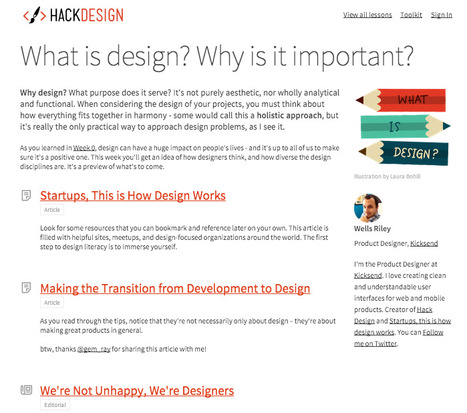
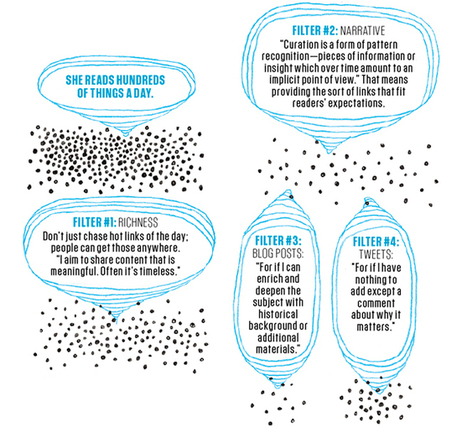


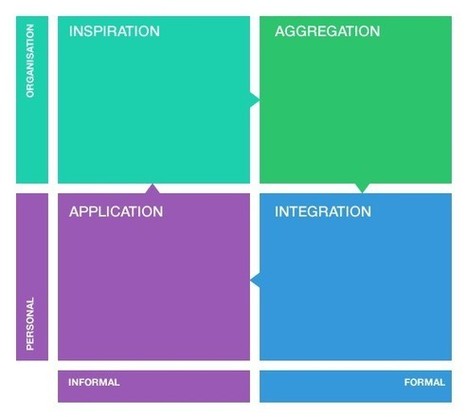
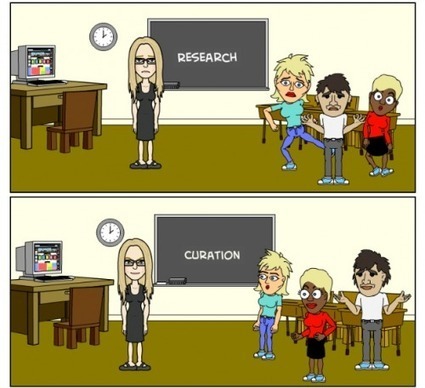
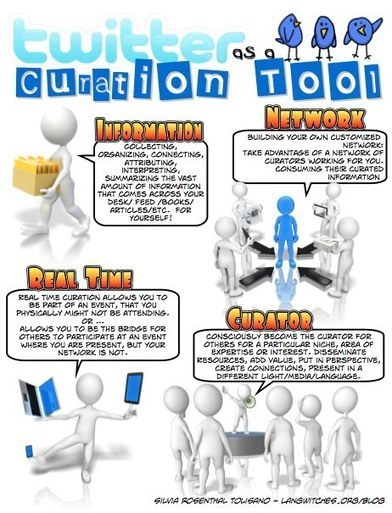

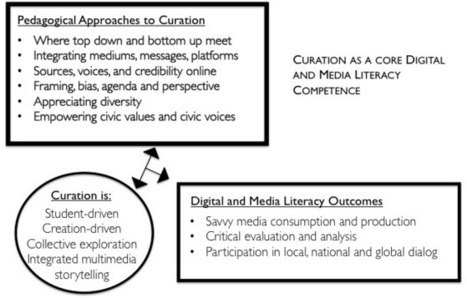

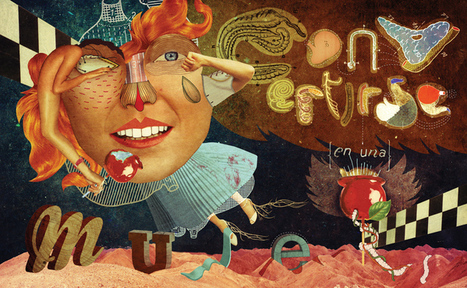


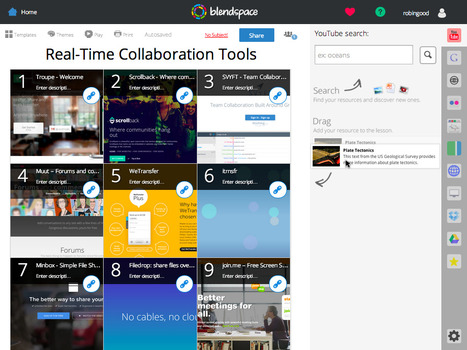
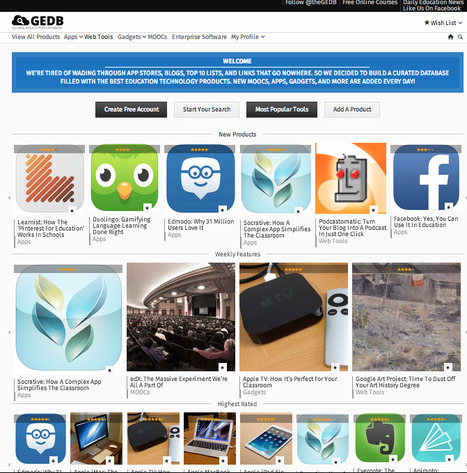

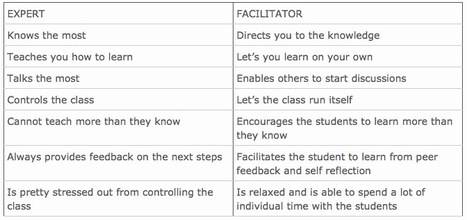






This article points out in multiple ways and with some interesting supporting data how big is the problem for schools and educational institutions in trying to identify relevant tools to adopt in absence of expert trusted guides that they can rely on.
The Hechingerreport writes: "...school leaders on this new frontier face a daunting challenge: from the slew of highly touted new products, how do they pick the right ones?
“It’s hard for our people to know what all of the choices are,” said Penny Hodge, the assistant superintendent of budget and finance in Roanoke. “Maybe there were even better choices and we weren’t aware.”
Today’s school leaders must navigate a market with little trustworthy evidence to show what works. Billions of dollars are being spent while educators try to untangle a maze of sales pitches."
The problem of identifying the most appropriate tools, services or products is not a problem limited only to the education sector. Just about anyone who is not an tech-expert in his area would have a hard time today finding the most appropriate tools in the midst of so many offerings and so little trustworthy information about them.
"Part of the reason is that credible evidence often isn’t available. Only one-third of school technology directors surveyed said that education technology companies offer reliable data on their products, according to the survey."
The solution to this issue is already starting to emerge in the form of both non-profit and commercial companies who will devote their time and resources to scout, test, verify and review tools while providing the means to search, filter and compare them easily.
Graphite.org, Edshelf are just two among many emerging examples of "reputable curation websites, with professional reviews and a social media component" that provide a one-stop solution for those in need of an expert and trusted guide in the tools for education area.
Must read for anyone interested in better understanding where we are headed when it comes to choosing tools.. 9/10
Full article: http://hechingerreport.org/as-market-surges-schools-struggle-to-find-the-best-tech-products/
Check also this excellent head-to-head comparison between Graphite and EdShelf: http://www.psla.org/blog/edshelf-vs-graphite/
Image credit: Shutterstock
This article points out in multiple ways and with some interesting supporting data how big is the problem for schools and educational institutions in trying to identify relevant tools to adopt in absence of expert trusted guides that they can rely on.
The Hechingerreport writes: "...school leaders on this new frontier face a daunting challenge: from the slew of highly touted new products, how do they pick the right ones?
“It’s hard for our people to know what all of the choices are,” said Penny Hodge, the assistant superintendent of budget and finance in Roanoke. “Maybe there were even better choices and we weren’t aware.”
Today’s school leaders must navigate a market with little trustworthy evidence to show what works. Billions of dollars are being spent while educators try to untangle a maze of sales pitches."
The problem of identifying the most appropriate tools, services or products is not a problem limited only to the education sector. Just about anyone who is not an tech-expert in his area would have a hard time today finding the most appropriate tools in the midst of so many offerings and so little trustworthy information about them.
"Part of the reason is that credible evidence often isn’t available. Only one-third of school technology directors surveyed said that education technology companies offer reliable data on their products, according to the survey."
The solution to this issue is already starting to emerge in the form of both non-profit and commercial companies who will devote their time and resources to scout, test, verify and review tools while providing the means to search, filter and compare them easily.
Graphite.org, Edshelf are just two among many emerging examples of "reputable curation websites, with professional reviews and a social media component" that provide a one-stop solution for those in need of an expert and trusted guide in the tools for education area.
Must read for anyone interested in better understanding where we are headed when it comes to choosing tools.. 9/10
Full article: http://hechingerreport.org/as-market-surges-schools-struggle-to-find-the-best-tech-products/ ;
Check also this excellent head-to-head coparison between Graphite and EdShelf: http://www.psla.org/blog/edshelf-vs-graphite/ ;
добавить ваше понимание ...